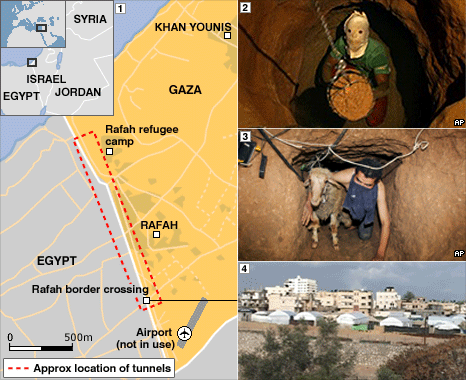Israel’s goal of destroying Hamas tunnel network

Violence in Palestine is, unfortunately, nothing short of old news for most of the Western world.
The status quo has come to be accepted as one riddled with violence, sporadic bombings and, in extreme circumstances, an Israeli invasion of Gaza, the latest of which, of course has recently transpired. Differences in motivation and culture are doubtless the source of discussion for many who seek to make sense of the Israeli-Palestine conflict, and will almost certainly continue to be the case the two sides continue to kill each other for the foreseeable future. One of the only things that Israeli and Hamas leadership have in common is their implacable nature. Israeli Prime Minister, Benjamin Netanyahu, has sought to decimate any semblance of Hamas infrastructure within Palestine, though has largely been able to do so. Similarly, Hamas front-man Khaled Mashal has lobbied heavily not only to maintain the current status of quo of violence and coordinated attacks against Israelis, but also an effort to increase the Hamas stockpile of weapons, augment current relations with Hezbollah as well as with Iran, and establish a permanent liaison with North Korea, one of its littler known but more voluminous suppliers of weaponry and heavy explosives.
Moreover, Mashal has utilized his relationship with Pyongyang to garner, in addition to weapons, expertise in tunnel construction and maintenance. Perhaps unbeknownst to many, North Korea has established one of if not the most advanced tunnel infrastructures in the entire world. The network of tunnels that rest near the demilitarized zone separating North Korea and South Korea has been a font from which Hamas has been able to consistently draw in order to strengthen its own network of tunnels and funnel supplies from the Egyptian side of the border into Palestine and, in some instances, attempted to slip underneath the Israeli border to launch covert attacks.
While these attacks have mostly been quelled, the Israeli Prime Minister recently broached the issue of Hamas tunnel infrastructure, and stated that he, quote, wants to “destroy” them, stating even that Israel’s withdrawal is contingent on the utter destruction of the tunnel system. As was likely intended, such a boisterous statement will undoubtedly drum up support for Netanyahu, whose current rise in popularity mirrors that experienced by Russian strongman Vladimir Putin after the latter’s incursion into Ukraine. The tentative cease-fire now in place between Israeli and Palestinian sources was brokered in such a way that Israel is still allowed to destroy the tunnel system, though the extent of the system remains unclear, and will likely continue to be a source of conflict for both Palestinian and Israeli sources. What is known about the system is that they have been utilized on several occasions by Palestinians to attack and kill Israeli soldiers, that they are often reinforced and protected from explosions, and that they are situated in locations that are politically sensitive, like schools and churches. As the 72 hour peace treaty begins, the Israeli military will likely be faced with the challenge presented by the fact that the system runs beneath sensitive Palestinian structures, and will likely face pushback from their Palestinian counterparts as a result. If the two sides are able to overcome these geographic obstacles the likelihood that a truce lasting longer than three days will succeed will vastly increase.
Eric Wheeler